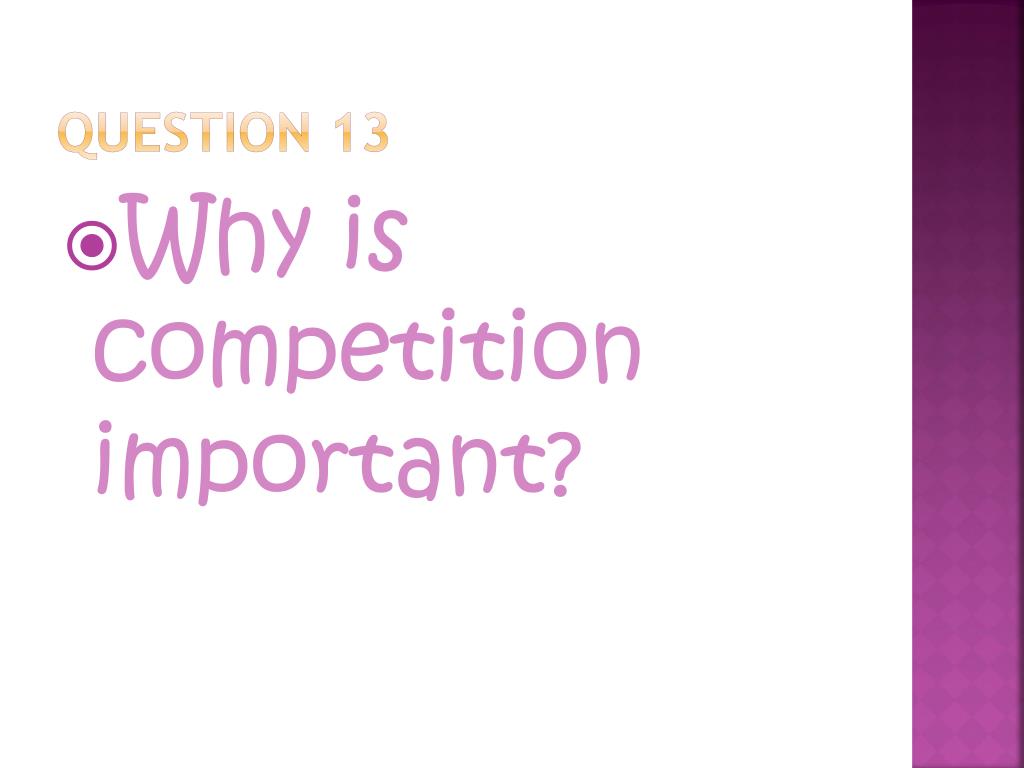Why Is Competition Necessary For Success

In boardrooms and classrooms, on athletic fields and in research labs, the drive to excel is a constant hum. Is this relentless pursuit of victory, this inherent need to outdo others, truly essential? The question of whether competition is a prerequisite for success is a complex one, sparking debate among economists, psychologists, and business leaders alike.
At its core, the concept of competition driving success hinges on the idea that striving against others compels individuals and organizations to innovate, improve, and ultimately achieve greater heights. Without the impetus of a rival, complacency can set in, stagnation can occur, and potential advancements might remain unrealized. This article delves into the multifaceted reasons why competition is widely considered a critical ingredient for achieving success, examining its impact on innovation, efficiency, consumer benefit, and individual growth.
The Engine of Innovation
One of the most compelling arguments for competition is its role as a catalyst for innovation. When companies or individuals are vying for market share or recognition, they are incentivized to develop new and better products, services, and processes.
As Harvard Business School professor Michael Porter argues, "Competition drives innovation and forces companies to become more efficient." This constant pressure to stay ahead leads to breakthroughs that might not occur in a monopolistic or stagnant environment.
Consider the smartphone industry: the ongoing battle between Apple and Samsung has resulted in a relentless stream of technological advancements, from improved camera technology to more powerful processors. These advances directly benefit consumers, providing them with increasingly sophisticated and useful devices.
Driving Efficiency and Productivity
Competition not only fosters innovation but also pushes organizations to operate more efficiently. Companies facing intense rivalry are forced to streamline their operations, reduce costs, and improve productivity to remain competitive.
According to a report by the Organization for Economic Co-operation and Development (OECD), competitive markets tend to exhibit higher levels of productivity than less competitive ones. This is because businesses in competitive environments are constantly seeking ways to optimize their resources and minimize waste.
This drive for efficiency translates into lower prices for consumers and increased profits for companies that can successfully navigate the competitive landscape. The airline industry, despite its challenges, provides a clear example of how competition can drive down prices and increase the availability of air travel.
Benefits to Consumers
The ultimate beneficiaries of competition are often consumers. A competitive marketplace provides consumers with a wider range of choices, better quality products and services, and lower prices.
When companies are competing for customers, they are more likely to offer superior products, provide excellent customer service, and engage in price wars to attract business. The food industry, for example, showcases a vast array of brands and products catering to diverse tastes and preferences, all driven by fierce competition for market share.
Furthermore, competition ensures that companies are accountable to their customers. Businesses that fail to meet consumer demands risk losing market share to their rivals, incentivizing them to prioritize customer satisfaction and loyalty.
Individual Growth and Development
The benefits of competition extend beyond the corporate world to the realm of individual growth and development. Participating in competitive activities, whether in sports, academics, or the workplace, can foster resilience, determination, and a growth mindset.
Facing challenges and setbacks in a competitive environment teaches individuals how to persevere, learn from their mistakes, and continuously improve their skills.
"Iron sharpens iron, and one person sharpens another,"as the proverb states, highlighting the value of striving against others to become stronger and more capable.
However, it's important to acknowledge the potential downsides of excessive competition, such as increased stress, unethical behavior, and a focus on short-term gains at the expense of long-term sustainability. A healthy balance between competition and collaboration is essential for fostering a thriving and equitable society.
Looking Ahead
The role of competition in driving success is likely to remain crucial in the years to come. As technology continues to disrupt industries and globalization intensifies, the ability to innovate, adapt, and operate efficiently will be paramount for individuals and organizations alike.
While collaboration and cooperation are also essential elements of a successful society, the competitive spirit serves as a powerful engine for progress. By fostering a culture of healthy competition, we can unlock human potential, drive innovation, and improve the lives of people around the world.
Ultimately, embracing competition as a catalyst for growth, while mitigating its potential negative consequences, is a key ingredient for achieving lasting and meaningful success in an increasingly dynamic world.



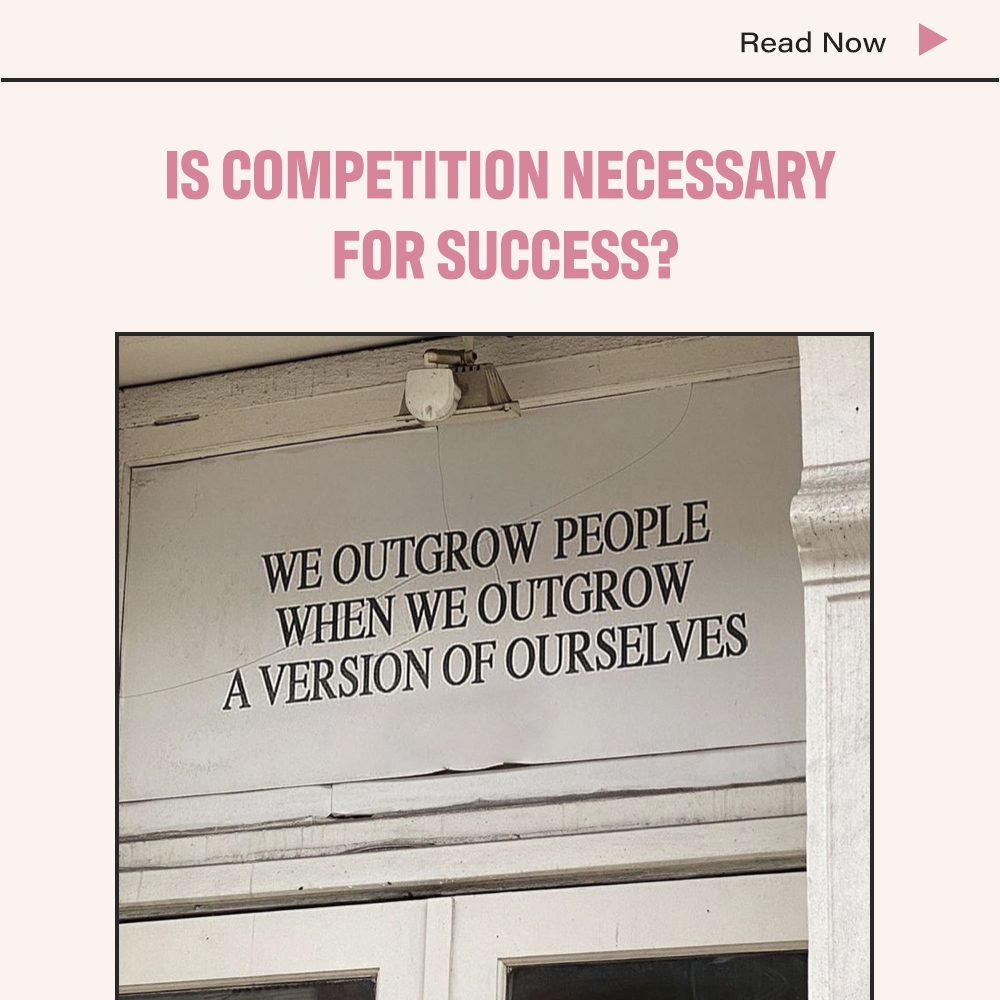
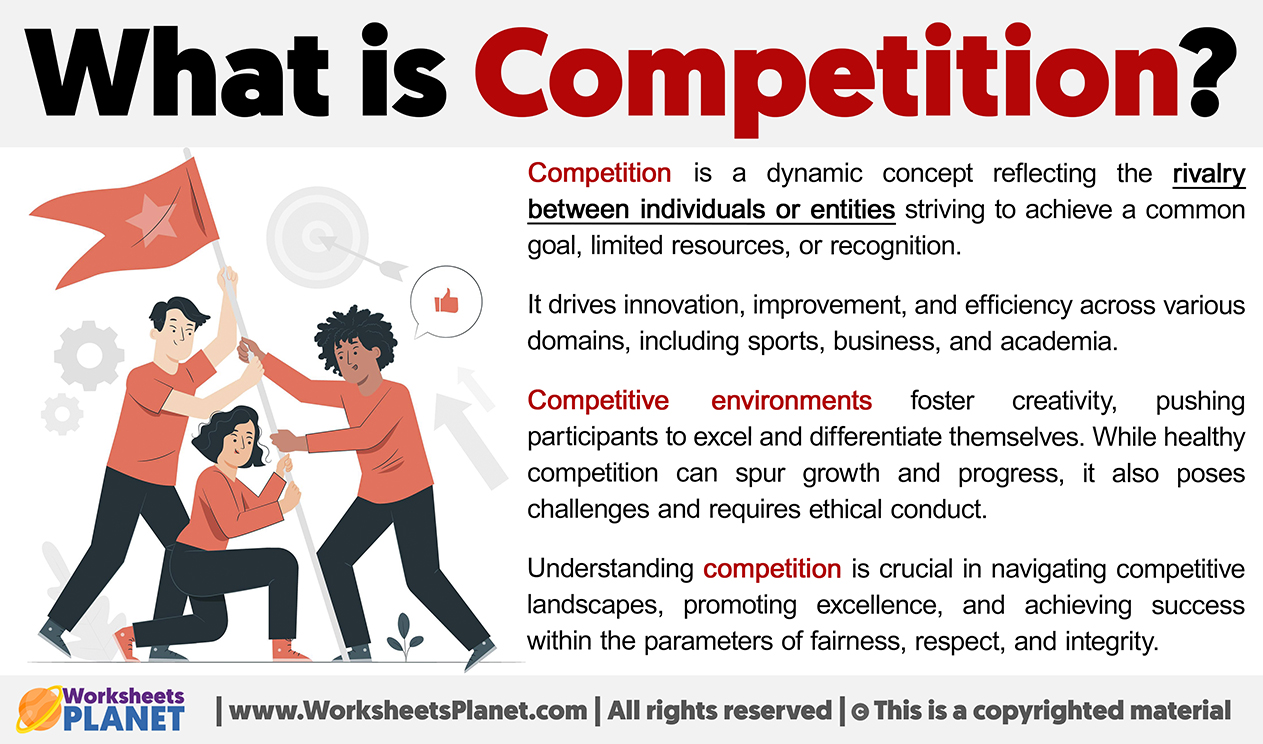
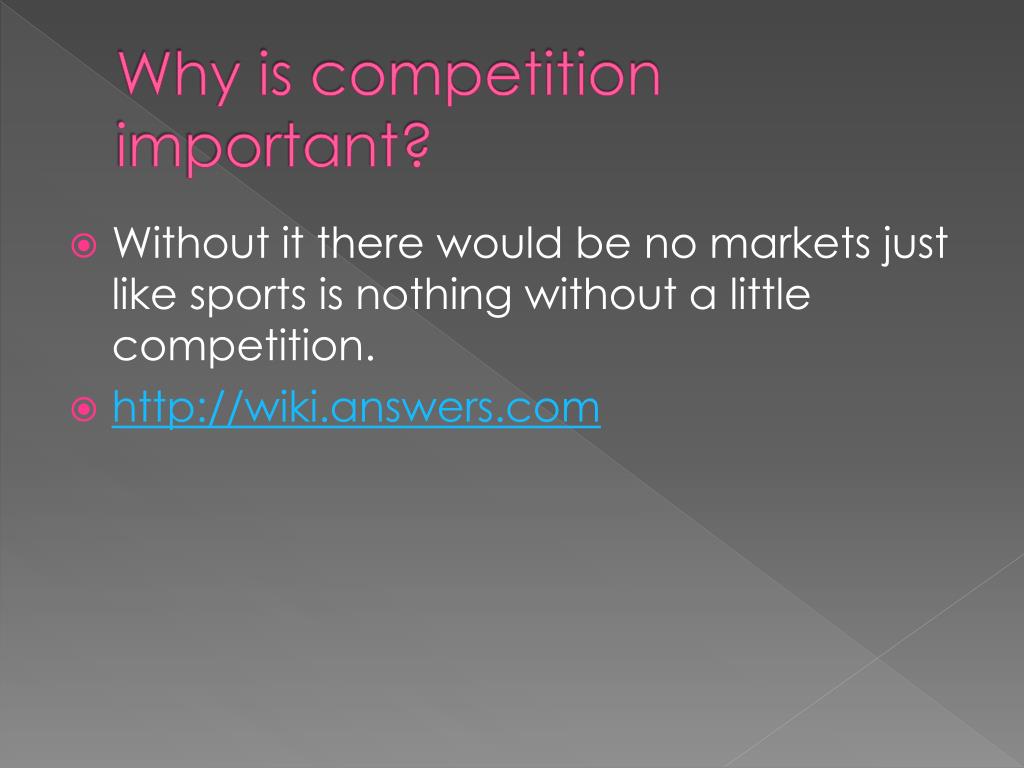

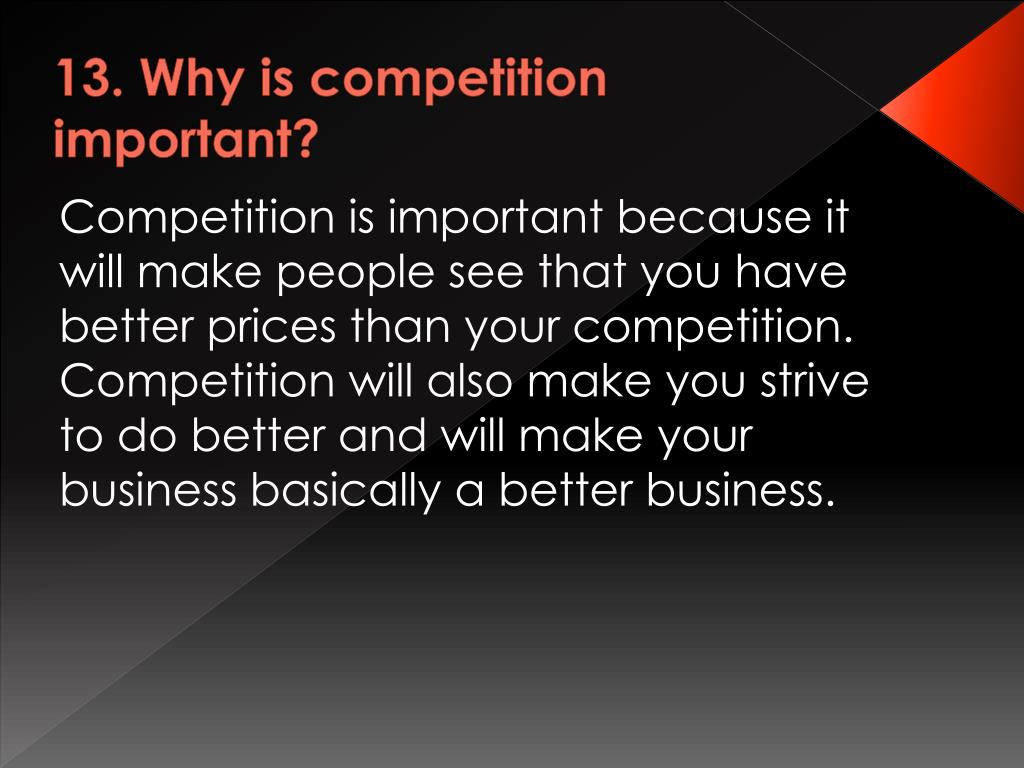


![Why Is Competition Necessary For Success [1-Minute Video] 5 Reasons Why Being Competitive Will Make You More](https://i.ytimg.com/vi/p1fp78HslQM/maxresdefault.jpg)






